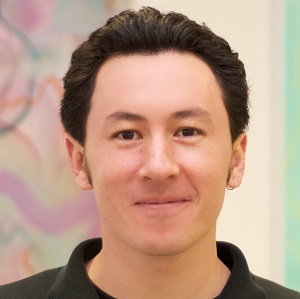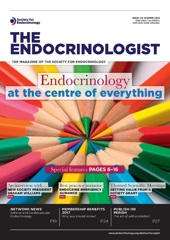
Delegates at the Cambridge meeting
Jason Carroll recently received the Society’s Themed Scientific Meeting Grant to run a conference on hormone-dependent cancers. Here, he tells us why he applied for the award and how it has benefited his area of science.
Hormone-dependent cancer is commonly seen as an ‘old’ and ‘mature’ area of work, particularly when viewed next to some cancer types that are only now being characterised. However, two major variables keep hormone-dependent cancers in the spotlight.
The first is that oestrogen receptor (ER)-positive breast cancer and androgen receptor (AR)-driven prostate cancer continue to kill thousands of people every year. This is despite the existence of endocrine therapies that block ER and AR activity in breast and prostate cancer respectively.
Secondly, recent technological advances in ‘-omics’ and cancer modelling have revealed extraordinary insights into hormone-dependent cancers that we simply didn’t appreciate a few years ago. We now know that endocrine resistance can arise due to changes in the fidelity of ER and AR themselves, and that existing agents that block these proteins lack efficacy in these situations.
This has clarified the need for better targeted agents that can modulate these pathways indirectly, which requires an understanding of the biological basis of ER/AR activity. In addition, recent advances in cancer modelling have meant that we can study hormone-dependent cancer in a more physiologically relevant and robust manner.
FACILITATING COLLABORATION
Our field is changing so fast that it’s sometimes challenging to keep up with new discoveries and publications. Wayne Tilley (my collaborator from the University of Adelaide, SA, Australia) and I thought it was critical for us to gather some of the leaders in the field together, in order to present new findings and to discuss and share ideas.
Being able to discuss ideas ‘offline’, and to brainstorm, are crucial parts of knowledge transfer. This can lead to successful collaborative efforts. As such, having key people together in one location with the time for discussion and debate is vital.
ACHIEVING A BROAD REACH
'Being able to discuss ideas "offline", and to brainstorm, are crucial parts of knowledge transfer. This can lead to successful collaborative efforts'
The meeting we organised in Cambridge (UK) included some of the people who are most central to changing paradigms and shaping our understanding of these important cancers. We were keen to ensure that the meeting reflected the different aspects of the research area, including novel biological understanding, evolving cancer models and new preclinical and clinical observations.
A number of exciting new treatment options are available for women with ER-positive breast cancer and men with prostate cancer but, in many cases, we don’t know how to stratify patients appropriately, because we’re still not sure who will benefit from specific treatments and who will not. This meeting was designed so that new clinical findings could be discussed in the presence of the biologists and clinicians who are learning about the cancer specific variables, to facilitate better patient stratification. This integrative approach is required in order to maximise the success of new therapies.
THE IMPORTANCE OF FUNDING
Both of us who organised this meeting have an excellent long-standing relationship with the Society for Endocrinology. When we heard about the funding opportunity provided by the Themed Scientific Meeting Grant, we were keen to apply. Once we had gone through the application process, what was most striking was how easy and user friendly it had been. It was not at all complicated or laborious and we received a response quickly – this is in stark contrast to many other funding agencies.
Organising a conference such as we did, with world-leading speakers, requires funds to ensure we could cover the running costs and the speakers’ travel and accommodation. Without this support, speakers of a high calibre wouldn’t have attended. This is why it’s important such conference funding opportunities are available, and why we are so grateful for the funds we received from the Society for Endocrinology.
We were delighted with the conference, and hope that we can run similar meetings again in the near future.
Jason Carroll
Group Leader, Cancer Research UK Cambridge Institute
The Society’s Themed Scientific Meeting Grant provides up to £10,000 to support the best new science by funding short, focused scientific meetings. The next application deadline is 31 May 2017.







